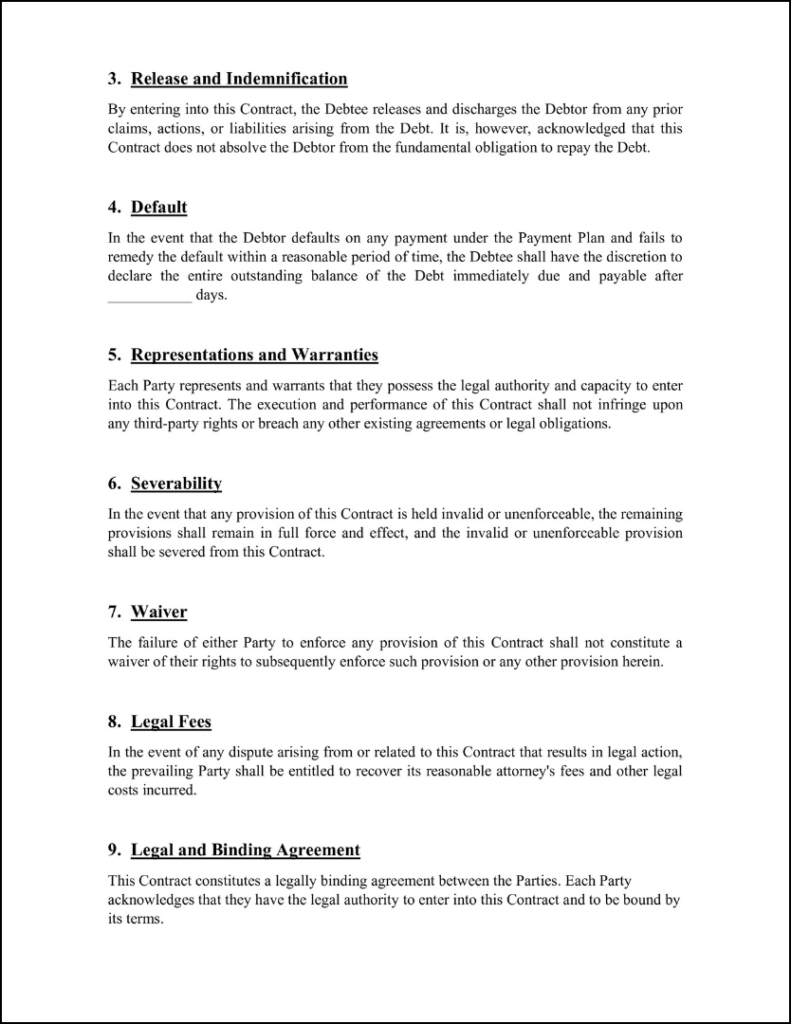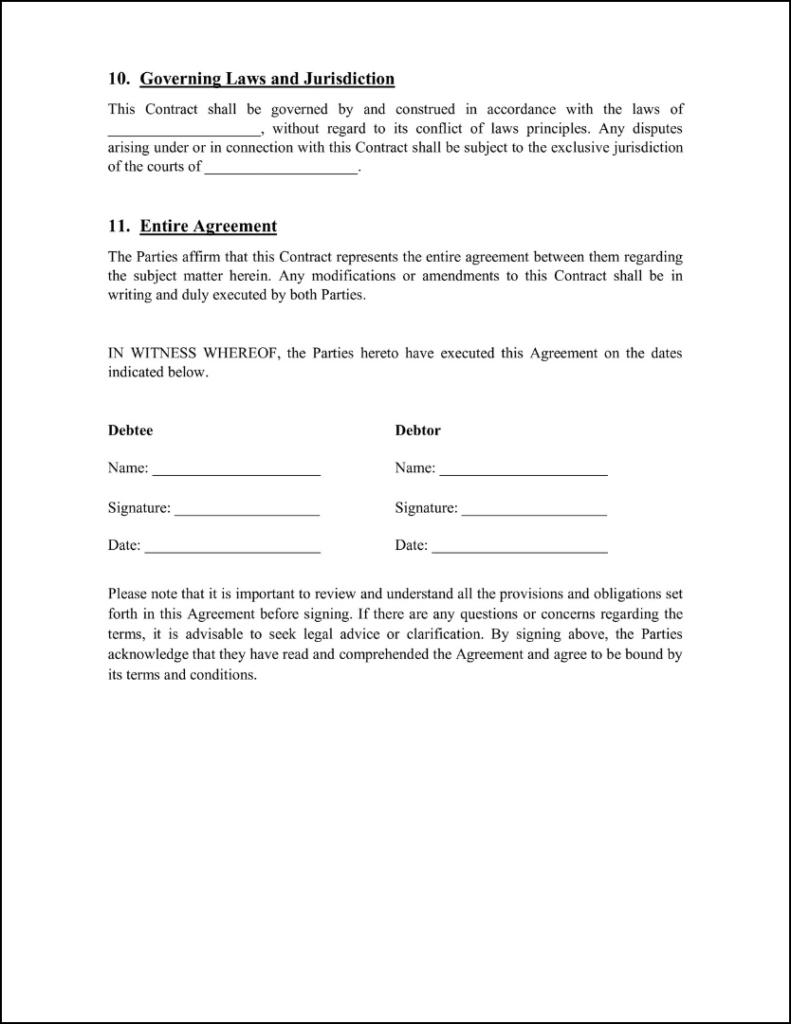
In the world of business, payment agreements are instrumental in establishing clear terms and conditions for financial transactions. Whether you are a service provider, freelancer, or business owner, having a well-crafted Payment Contract Template is essential to safeguard your interests and ensure a smooth payment process.
Are you looking for a reliable way to formalize payment agreements and ensure smooth transactions? Look no further! We are thrilled to offer you our Free Payment Contract Template. Download our Free Payment Contract Template now and take the first step toward securing your financial agreements!


A Payment Contract, also known as a Payment Agreement or Payment Plan, is a written document that outlines the terms and conditions of a payment arrangement between two parties. This contract serves as a legally binding agreement that governs the details of a financial transaction. Whether it’s for a one-time purchase, a service provided, or a recurring payment plan, a Payment Contract lays down the groundwork for a smooth and transparent exchange of funds.
In the context of business or personal transactions, a well-drafted Payment Contract acts as a safeguard for both parties involved. It clarifies the responsibilities of the payee and the payer, establishes a clear timeline for payments, and sets forth any applicable penalties or late fees for non-compliance. Having such an agreement in writing enhances trust between the parties and provides recourse in case of disputes or misunderstandings.
A Payment Contract is of utmost importance as it brings structure and certainty to financial transactions. By documenting the terms and conditions of the payment arrangement, a Payment Contract:
Access our free Payment Contract sample to safeguard your interests. Download now and take proactive steps toward a secure Payment Contract at no cost.
To ensure that all parties involved are protected and understand their obligations, creating a Payment Contract necessitates careful consideration and attention to detail. Here are some comprehensive tips for writing a Payment Contract that is clear, effective, and legally sound:
Avoid using complex legal jargon or overly technical language. Instead, use simple and straightforward terms that are easily understandable by all parties. A well-written contract can be interpreted without confusion or ambiguity.
Be precise when outlining the payment terms. Clearly state the total amount owed, the currency, and the exact payment schedule. Specify whether the payment will be made in a lump sum or installments, and provide the due dates for each payment.
Explicitly state the acceptable payment methods, such as cash, bank transfer, check, credit card, or any other electronic payment method. If there are specific instructions or account details for the payment, include them in the contract.
To encourage timely payments, establish a clear late payment policy. Define the grace period (if any) and the penalties or late fees that will be imposed if the payment is not made within the specified time frame.
Describe in detail the goods, products, or services being provided in exchange for the payment. Include relevant information about quantity, quality, and any specific conditions or requirements.
If applicable, indicate the expected delivery date or completion date of the goods or services. This helps set clear expectations for both parties and avoids any misunderstandings about timing.
Clarify whether the payment amount includes taxes or if they will be added separately. Also, specify whether there are any additional costs, such as shipping or handling fees, and how they will be handled.
Include a section that outlines the process for resolving any disputes that may arise during the course of the contract. This can include mediation or arbitration clauses, which offer an alternative to going to court.
Specify the conditions in which either party may terminate the agreement. Include any notice periods required for termination, and outline any consequences or refunds that may apply upon termination.
State the jurisdiction and laws that will govern the interpretation and enforcement of the contract. This helps to avoid confusion if the contract is subject to different legal systems.
If the payment contract involves significant amounts of money or complex arrangements, consider seeking legal advice to ensure that the contract complies with relevant laws and regulations.
Both parties should retain copies of the signed contract for their records. This will serve as a reference in case of any disputes or questions about the terms agreed upon.